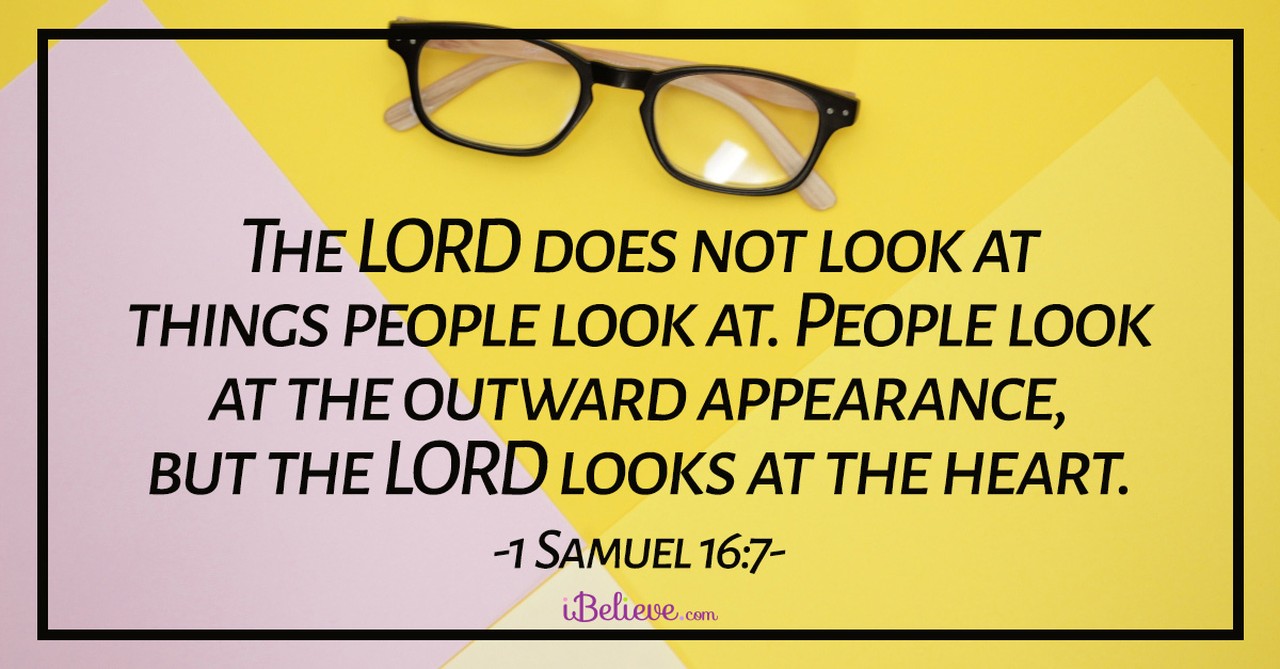
You’ve probably heard something like this before. A conversation turns to matters of faith. Your friend then says, “I’m not interested in religion, but I do consider myself a spiritual person.” Perhaps you have even said something like this.
Whatever our viewpoints or beliefs, it is a common notion that the words religion and spirituality signify something different, even if we’re not sure what that difference is. Although there is some overlap between the two words, I believe the differences are more pronounced.
Photo Credit: ©GettyImages/phototechno
Let’s Start by Defining ‘Religion’ and ‘Spirituality’ More Carefully

Let’s Start by Defining ‘Religion’ and ‘Spirituality’ More Carefully
SLIDE 1 OF 6
Religion refers to any belief structure that deals with the reality of something beyond the physical world. This includes a belief in a god or gods, an organized system of doctrine, and the practices that come with those beliefs. With a definition like this, we can include all of the world’s religions, starting from primitive animism and Greek polytheism, down through Hinduism and Zoroastrianism, all the way to Judaism and Christianity.
But spirituality refers to something different. It also deals with intangible realities like religion, but it focuses on something much more personal. You can have a keen interest in spirituality without being a part of any organized religion.
On the other hand, you can claim adherence to some form of religion without necessarily being spiritual. Here’s another way to say it:
Religion tends to refer more to the conceptual side of faith matters. Spirituality refers more to the experiential side.
But clarifying the definitions of these two words still leaves out a number of important nuances. That’s what I want to explore now, so that the liberating way of Jesus can be better understood and accessed. Here are five ways spirituality differs from religion:
Photo Credit: ©GettyImages/metamorworks
1. Religion Can Be Binding, Spirituality Is Meant to Be Life-Giving

1. Religion Can Be Binding, Spirituality Is Meant to Be Life-Giving
SLIDE 2 OF 6
The word religion comes originally from a Latin word that means to bind. The word was then used for monks’ vows. Knowing this, it’s easy to see why today it tends to be used in the negative sense of restriction, obligation, and duty. Religion feels like what you are supposed to believe or how you are supposed to act.
But spirituality doesn’t have the same negative connotations. Spirituality comes from another Latin word that means breath or spirit. When we go back further into the biblical languages, the Greek and Hebrew words for spirit also can refer to breath or spirit, or to signify the wind.
With such a word history, spirituality tends to be associated with what is life-giving. What can be more life-giving than the air we breathe? What can be more life-giving than helping that deepest part of our personalities, the human spirit?
Photo Credit: ©GettyImages AaronAmat
2. Religion Is What You Say You Believe, Spirituality Is What You Truly Believe

2. Religion Is What You Say You Believe, Spirituality Is What You Truly Believe
SLIDE 3 OF 6
Your religion tends to be your conceptual theology, the beliefs you hold to be true. It is what you say you believe. It is how you would describe your faith in terms of God, Jesus, or another world religion. It would also be a description of the basic tenets of your faith. As such, these ideas reside in the mind.
But your spirituality deals with your functional theology, what you truly believe. It is how you function in life. Sometimes one’s religion and spirituality are in alignment. Sometimes, they are not.
Here is an example from my own life. When the Lord called me to start a ministry to men eight years ago, I began with great gusto. But soon into the mission, I floundered. I became overwhelmed with anxiety about failure and finances.
In my conceptual theology, I said I believed that God would take care of my needs. But my lived experience exposed something very different. What I really believed is that I needed to hustle and push my way through to survive. If I didn’t, everything would collapse.
As I processed what was happening to me, it became an opportunity to let go and rest in God’s provision. Anxiety began to dissipate as trust in my heavenly Father grew. What I said I believed and what I truly believed began to line up. My conceptual and functional theology were no longer divided.
Photo Credit: ©GettyImages/oatawa
3. Religion Focuses on the Outward, Spirituality Focuses on the Inward

3. Religion Focuses on the Outward, Spirituality Focuses on the Inward
SLIDE 4 OF 6
We tend to associate religion with certain outward behaviors: how we celebrate certain holidays, what types of church services we attend, what is considered right and wrong, how we act in general toward others.
There is nothing wrong inherently with thinking about any of these matters. But as we all know, outward behavior can be divorced from inner realities.
One of the most important themes in the whole Bible is the insistence that one’s inner life is more important than external behavior. Here is how the Lord Himself speaks about it when the prophet Samuel is trying to choose Israel’s next king:
The Lord does not look at the things people look at. People look at the outward appearance, but the Lord looks at the heart. – 1 Sam. 16:7
One’s inner life is so important because it deals with the heart, the center of the human personality. Outward appearances can be deceiving, but what is in the heart is the truth about a person. That’s what God sees.
Spirituality focuses here, on matters of the heart. And if one’s spirituality is good and right and God-honoring, it will come out in actions that are also good and right and God-honoring.
Photo Credit: ©Crosscards/Bethany Pyle
4. Religion Deals with the Communal, Spirituality Deals with the Individual

4. Religion Deals with the Communal, Spirituality Deals with the Individual
SLIDE 5 OF 6
So far, I have placed a lot more positive emphasis on spirituality than on religion, but here I need to issue a caution. We tend to think of religion in a communal sense, but one’s spirituality as personal and thus individualistic. This is not necessarily bad, but it can lead you down some unfortunate paths.
Because of the flow of Western philosophy, truth is no longer posited as something objective. It is seen as a subjective matter, to be decided by each individual. This extreme individualism combined with a general distrust of organized religion gets easily turned into a privatized spirituality. There is no accountability and no community here.
As spirituality moves down this track, it can become indiscriminate, picking and choosing whatever truths one may happen to like. At its worst moments, there is no discrimination between good and evil in the spiritual realm. Whatever is spiritual is, by definition, acceptable. The biblical reality of good and evil spirits, the angelic and demonic, is not considered or seen as outdated. Here we have spirituality gone awry, with no boundaries and no straight edge of truth by which to judge it.
With that caution noted, let’s now end on a positive note about spirituality.
Photo Credit: ©GettyImages/thanasus
5. Religion Is Man’s Best Efforts, True Spirituality Is the Work of the Holy Spirit

5. Religion Is Man’s Best Efforts, True Spirituality Is the Work of the Holy Spirit
SLIDE 6 OF 6
As a Christian, I see a massive difference in the world’s religions and Christianity. In the last analysis, religion is man’s best attempts to find God and become good. But Christianity is all about God’s reaching down to find man and empowering him to become good. It is God’s initiative from start to finish. Our part is responding to what He has done through His Son Jesus.
Perhaps the most amazing truth of Christianity is the gift of the Holy Spirit given to each believer. God Himself comes down to reside in us. We don’t just receive good gifts from God. We receive the greatest gift of all, God Himself.
The Holy Spirit now becomes the power source for all true spirituality.
It is important here to note that when the apostle Paul uses the word spiritual in his letters, he is referring to the Holy Spirit. The work of the Holy Spirit is to do all that anyone’s spirituality could ever imagine: to free our hearts, cleanse our sin, guide us into truth, and empower us to love.
And the Holy Spirit does this by constantly pointing to Jesus (John 15:26).
How do you find a true spirituality? Just start asking the Holy Spirit. His job is to help make Jesus real in your heart. And when you experience Jesus’ presence in your heart, you are coming home...coming home to God, and coming home to your true self. There can be no better spirituality.
Photo Credit: ©GettyImages/ipopba

Originally published July 08, 2020.







